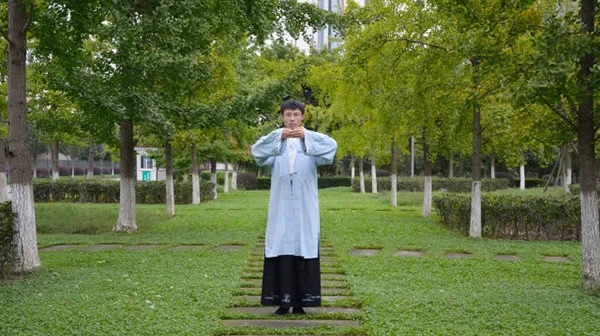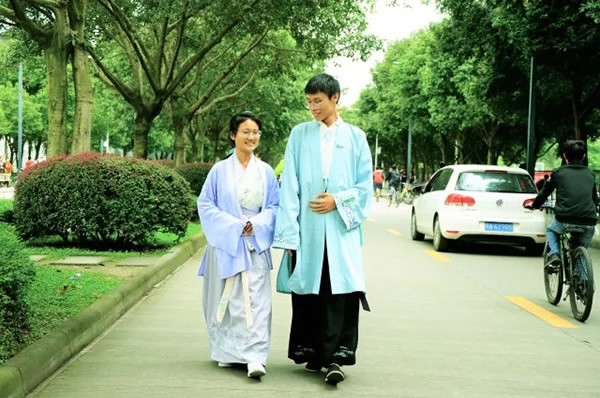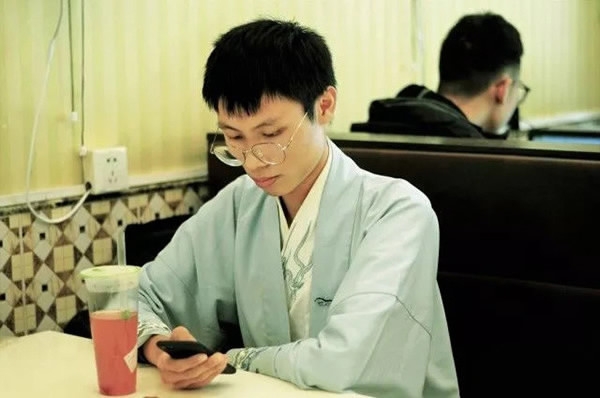
China
15:52, 22-Oct-2017
Wearing traditional clothing to promote traditional Chinese culture
CGTN

A Chinese young man has swapped jeans and shirts for flowing robes with loose sleeves and baggy pants as he attempts to keep the traditional outfit of his ancestors relevant in modern times.
When Kang Wei walks down the street he definitely turns heads. The tall and slim student at Southwest Petroleum University in southwest China’s Sichuan Province does not necessarily care about not keeping up with the fast-paced fashion industry and the latest trends.
He dresses not to impress, but to express his cultural heritage.

Photo via The Paper
Photo via The Paper
The young man has incorporated the ancient traditional outfit of the Han people into his everyday look for over a year now, sticking to clothing items that one has either seen in history books or historical TV dramas.
Kang was first introduced to the clothing style of the Han Dynasty while watching a music video in 2012. He now calls himself a "Han Clothing" enthusiast, arguing that "it is a traditional Chinese costume of the Han ethnic group that has been passed down from our ancestors."
The plain-looking dress without any extra ornaments is said to embody the Chinese concept that a man is an integral part of nature.
However, not everyone agrees that preserving one’s culture can be achieved by putting on a piece of cloth.

Photo via The Paper
Photo via The Paper
Some netizens have expressed belief that it is unnecessary to literally don an ancient costume to get one’s point across – opinions to which Kang responds by urging people to look at his outfit as a medium reflecting traditional culture.
Kang is also a fan of classical Chinese poetry, tea ceremonies and other interests that separate him from his peers.
These clothes "have become a part of my everyday life," he said. "I will keep on wearing them even when I get a job."
The government has been encouraging Chinese people to have more confidence in their culture, and schools to incorporate traditional culture into their curriculum to help young children understand from an early age the historical and traditional values of the country.
For instance, east China’s Shandong Province, the hometown of Confucius, has been taking measures to promote Confucianism in particular.

SITEMAP
Copyright © 2018 CGTN. Beijing ICP prepared NO.16065310-3
Copyright © 2018 CGTN. Beijing ICP prepared NO.16065310-3